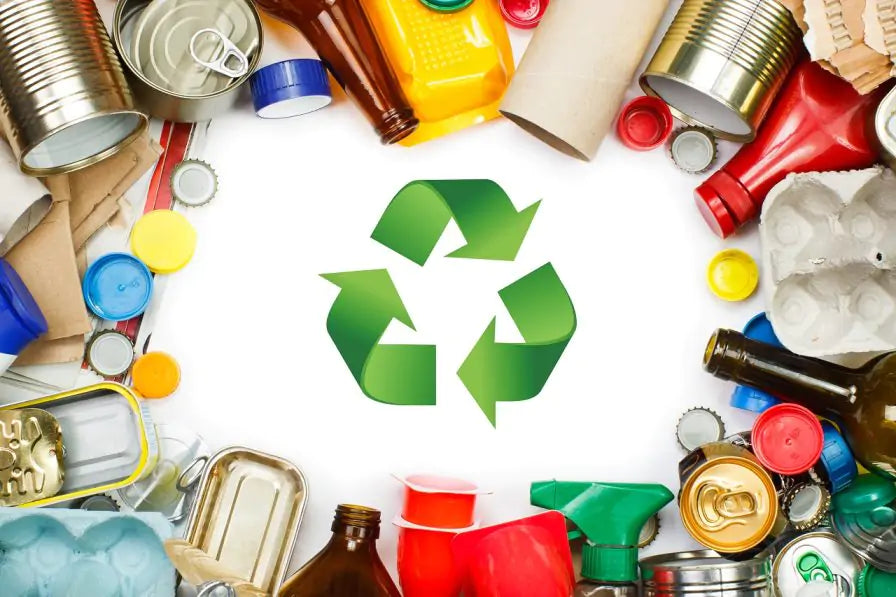Your basket is currently empty.
Shop NowCan Recycling Be Bad for the Environment

Can Recycling Be Bad for the Environment?
We are all told that recycling is great for the conservation of energy and resources, and ultimately for our planet. And it works. But before we feel too smug about washing out our yoghurt pots and bean cans and placing them in the recycling, we should consider if recycling can actually be bad for the environment in some ways. Here’s how:
Contamination
If there are toxins or contaminants in the original material, they are likely to end up in the new product. Contamination is not always obvious either, and is a big problem for the recycling industry. Sometimes, contamination prevents an item from being recycled at all.

Recycling produces air pollution
From the emissions given off by refuse vehicles to the energy used in recycling plants, the recycling process itself produces a fair amount of air pollution.
Paper ‘sludge’
When paper is recycled, it is mixed into a pulp, which is washed, cleaned, and then pressed into new sheets of paper. A part of the process involves getting rid of inks and dyes, which end up as sludge. This is either burned or send to landfill, where toxins can leach into groundwater.
Many plastics can’t be recycled
Some types of plastic aren’t recyclable yet, and they are simply sent to landfill. If an item is recyclable, it will say so on the packaging.
Some recycling methods just aren’t effective
Plastic bags are expensive to recycle, and even though we are reusing them more in general, recycling them costs more than they are worth, and many of them still end up in landfill.
Refining oil creates toxic chemicals
Recycling oil to make it into something useful creates toxic chemicals. Most oil treatment facilities use a treatment process called the acid-clay process. This filters out impurities, but it also creates a toxic sludge, which contains hydrochloric acid, amongst other toxins. This sludge is then burned, which sends nitric oxide and sulphur dioxide into the air. Oil is bad news for the environment. Full stop.
Recycling can’t meet the growing demand for products
As the global population grows, recycling can’t keep up with the demand for products. For example, demand for aluminium is growing by 10 percent each year. Aluminium still needs to be mined, because when it recycled, its quality diminishes and it can’t be used for certain things, like for parts in circuit boards.
Some things are better left unrecycled
Almost 90% of new paper that is produced comes from trees which are grown solely for the purposes of producing paper. Will more recycling reduce the demand for these forests?
‘All-In-One’ recycling is not efficient
Some councils have begun ‘all in one’ recycling, where paper, plastic, glass, and metal waste is put into the same recycle bin, which is then sorted at the recycling plant. The extra sorting requires more equipment and more machinery and processing equals more pollution.

Does recycling make us more wasteful in other areas?
We might think that by recycling, we are giving the planet a helping hand, but let’s face it, we still generate a lot of waste. We should be focusing on reducing waste in the first place rather than just recycling what we can.
